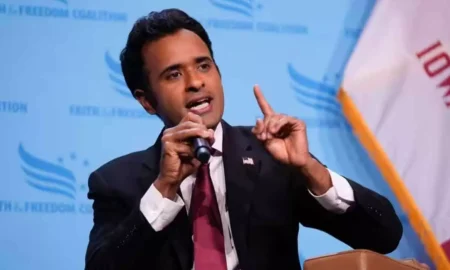On Wednesday, the Supreme Court postponed a decision on Delhi’s worsening air pollution. The Special Bench, chaired by Chief Justice of India Justice N.V. Ramana, continues to hear Delhi student Aditya Dubey’s complaint about air pollution in the NCT of Delhi.
The Centre set out what it has done, along with directions for the governments of Delhi, Uttar Pradesh, and Haryana, under numerous headings, with the Court reserving orders till the next hearing on November 24.
Guidelines from the Centre to Reduce Air Pollution in Delhi and the National Capital Region
-
Industrial Pollution
National Capital Region States and the GNCTD (Delhi) must guarantee that: All industries in the NCR with gas connections must use exclusively gas as a fuel, failing which the affected industries will be closed.
This Commission for Air Quality Management has already stated that no company should utilize unapproved fuels. All industries in the NCR that are still employing prohibited powers will shut down with immediate effect by the separate governments.
All industries in the NCR with gas connectivity must switch to gas immediately, and state governments must set industry-by-industry dates for changing.
The NCR State Governments and the GNCTD will also establish an effective enforcement mechanism, including intensive and continuous drives, by delegating an adequate number of teams comprised of senior officers to monitor compliance with air pollution emission control norms by Industrial Units and to take appropriate penal action and closure if necessary.
-
Thermal Power Plants (TPP)
Only five thermal power plants within a 300-kilometre radius of Delhi, namely NTPC, Jhajjar; Mahatma Gandhi TPS, CLP Jhajjar; Panipat TPS, HPGCL; Nabha Power Ltd. TPS, Rajpura; and Talwandi Sabo TPS, Mansa, will be allowed to schedule their operations, with the rest remaining inactive until November 30, 2021.
According to the Secretary of the Ministry of Power, any load requirements stemming from the shutdown will be met by power from other power plants located beyond a 300-kilometre radius of Delhi.
-
Transport Pollution/Vehicular Pollution the NCR States and the GNCTD must
Trucks are not allowed to enter Delhi until November 21, 2021, except for those transporting critical necessities, and this timeframe may extend if necessary.
The operation of diesel and petrol vehicles older than 10 and 16 years in the NCR is a significant concern, and the authorities must ensure that no vehicles older than 10 and 15 years, respectively, are detected on the road.
In the NCR, any visible polluting cars and vehicles without a PUC must be stopped. PUC checks could be done primarily at gas stations to avoid traffic congestion on freeways. GNCTD should buy and put on the road as many CNG buses as possible as soon as possible.
-
Measures to Prevent Dust
Construction and demolition activities in the NCR will be halted until November 21, 2021, except for the following projects:
- Services / Stations / Railways
- Services provided by the Metro Rail Corporation, including stations
- Interstate bus terminals and airports (ISBTs)
- Nationally significant activities/projects relating to national security/defence
Subject to strict adherence to the C&D Waste Management Rules and dust control regulations, as well as the Commission’s directives.
Anti-smog guns, water sprinklers (including augmenting such efforts through the large-scale deployment of fire tenders, etc.)
And dust suppressant applications should be carried out at least three times a day in all sensitive hotspots.
- DG Sets: Except for emergency services stated in the directives of the Sub-Committee on GRAP invocation from time to time, the NCR States and GNCTD shall implement a tight restriction on the usage of DG sets. To ensure the success of this action, the individual electrical supply agencies in Delhi-NCR must maintain an uninterrupted power supply.
- Promoting Work from Home (WFH) as a means of reducing traffic pollution: State governments in the NCR must allow Work from Home (WFH) for at least 50% of their employees in NCR offices until November 21, 2021, subject to further revision.
- Until further orders, all public and private schools, colleges, and educational institutions in the NCR will stay closed, permitting only online education.
- For efficient field-level execution and management of air pollution, these directives will be rigorously monitored by the NCR States / GNCTD’s Chief Secretaries. A compliance report will be filed before this Commission on November 22 2021.












